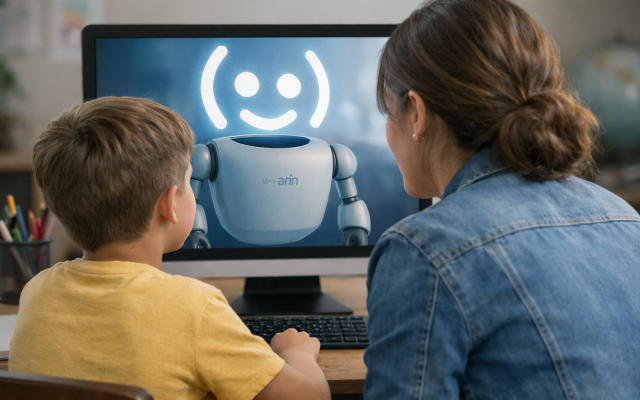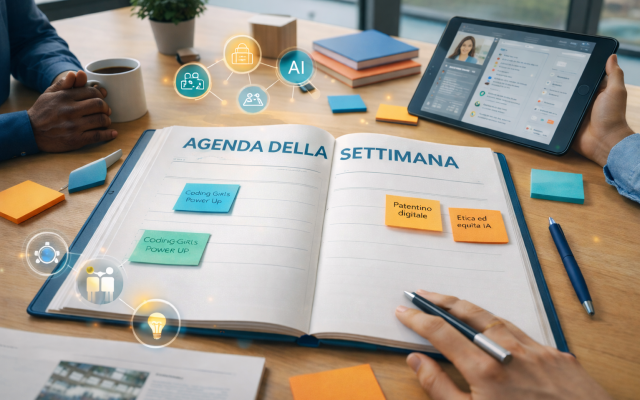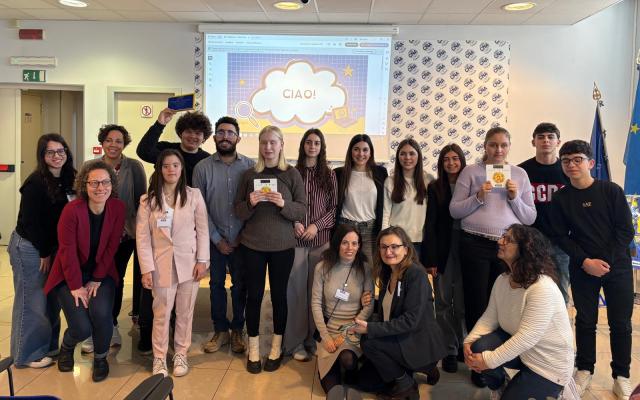3 min.
The event was set to start at 3 pm: a networked round table. The names on the table were just a handful of those about to participate. The experience of various individuals is spread throughout the room, amidst the audience. As a matter of fact, there hardly was any “audience" as such. The conference hall of the Istituto Santa Maria is filled to the brim with project protagonists.
The Scientific Director of the Fondazione Mondo Digitale, Alfonso Molina, underlines it often in his presentations: hybrid alliances are a fundamental element of any social innovation process. So, what does “hybrid alliance” mean? Try taking a 360 degree snapshot of the conference hall. You’ll spot Reya Terrones in the first row. She’s listening carefully. She will speak later and explain how she entered Italy as a clandestine and now leads a company that provides jobs to twenty people, Italian and foreign. Reyna is also President of the Associazione Nuovi Europei, promoted by Confcooperative Lazio, which has 600 partners from 76 countries.
On the right, you’ll see Renato Brunetti, President of Unidata spa, one of the pioneering companies in microcomputers. A few rows back there is another president, not of a company, but of an elderly social centre.
Standing in the back of the hall, are Luca Cristaldi and Ivan Toscano from VIS (Italian Volunteers for Development). They are amongst the best on the field, because they enjoy facing each challenge with tenacity.
Throughout the hall, elderly women resist the heat without batting an eyelid. They have come into contact with the Fondazione Mondo Digitale through the digital literacy courses for the elderly and now participate in all its events. They have become passionate about all forms of knowledge. They will also be on the stands to applaud the players in the “Io ci sono” football match.
They’re not famous faces. They work behind the props. They are the true social professionals, the reception managers. Savia Manfredi manages the Pietralata Centre. Margherita Valenti managed it before her.
At the round table, Franco Pittau underlines the network mentality: “if each one of use raises the awareness of ten people … we will have done more than politicians … who, as we know, are often wrong …”
On his left, Francesca Valenza, a mother, smiles. She has transformed her parenthood into a passion (the Parents Association of the Di Donato School) and is now a referent for the “Polo Intermundia” Project. Gabriella Sanna, Manager of the Intercultura Biblioteche di Roma, has transformed the Rome Libraries into a place for intercultural dialogue. In the meantime, Franco Pittau, Director of the IDOS Documentation Centre that prepares reports on immigration, is providing statistics. He has developed a deeply personal way of presenting this data. This emergency data is now less scary, because it has been transformed into stories and persons.
It’s Goitom’s turn to speak. He is an Eritran Mathematics Graduate. He meticulously describes the courses he has attended, what he had learned and his company internship. Without even meaning to, Goitom has just irrefutably demonstrated the “Integration Theorem”.



